The words in the title of this post are familiar to many of us boomers who had parents who lived through WWII. It was the slogan on a war era (1942-45) poster cautioning the Americans at home not to discuss things related to the ongoing battles in Europe and in the Pacific with anyone. The enemy has ears everywhere was the message.
I suppose if I thought about this at all, I thought that sure you’d have to be careful in big cities, on the coasts, if you lived near any military installations or factories that supplied the military or especially if you had family members serving in different parts of the world that you communicated with. If anything I suspect I thought that the government overemphasized this threat in order to impress it on the few people who might be in a position to make this mistake.
There was a rumor of Nazi spies here in Maplewood that I had heard from several folks, notably Tom Bakersmith. I hadn’t found any evidence of this kind of activity but I had made a post about it and it occupies a short chapter in my new book, Maplewood History – Volume Two. What follows is the first page from that chapter.
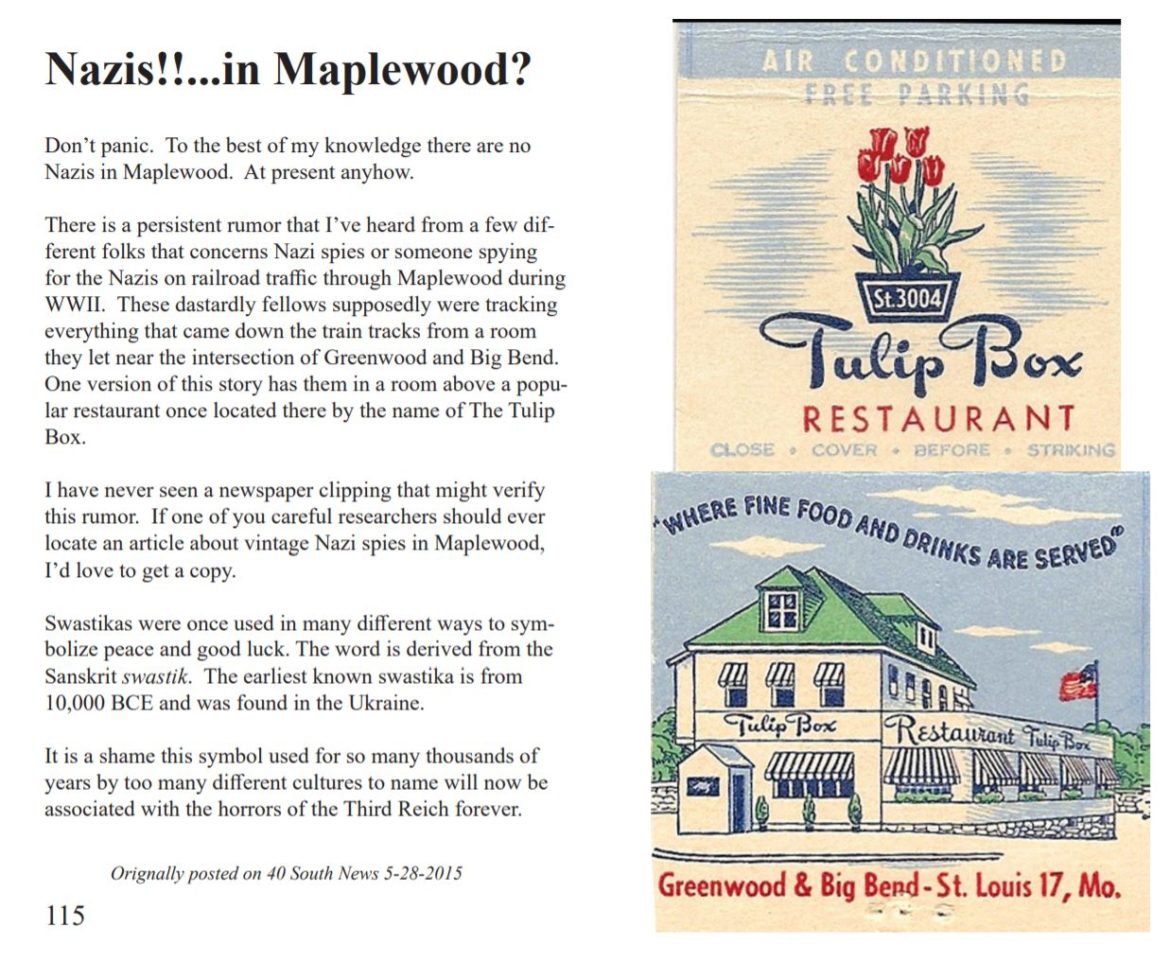
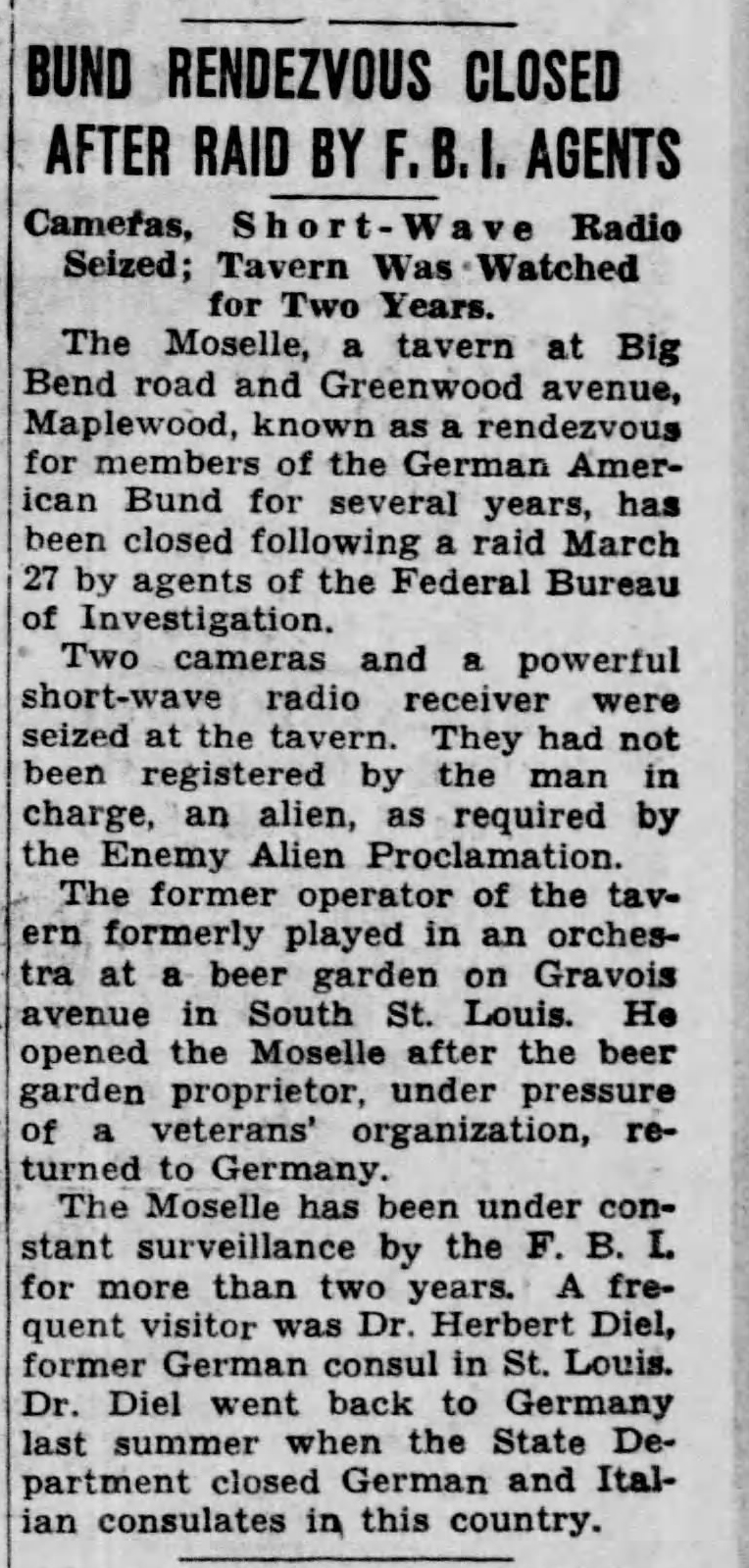

I wanted a few examples of posters that had carried warnings of situations like this one for this post. I was surprised at how many of them could be easily found. The National Archives has a huge collection.
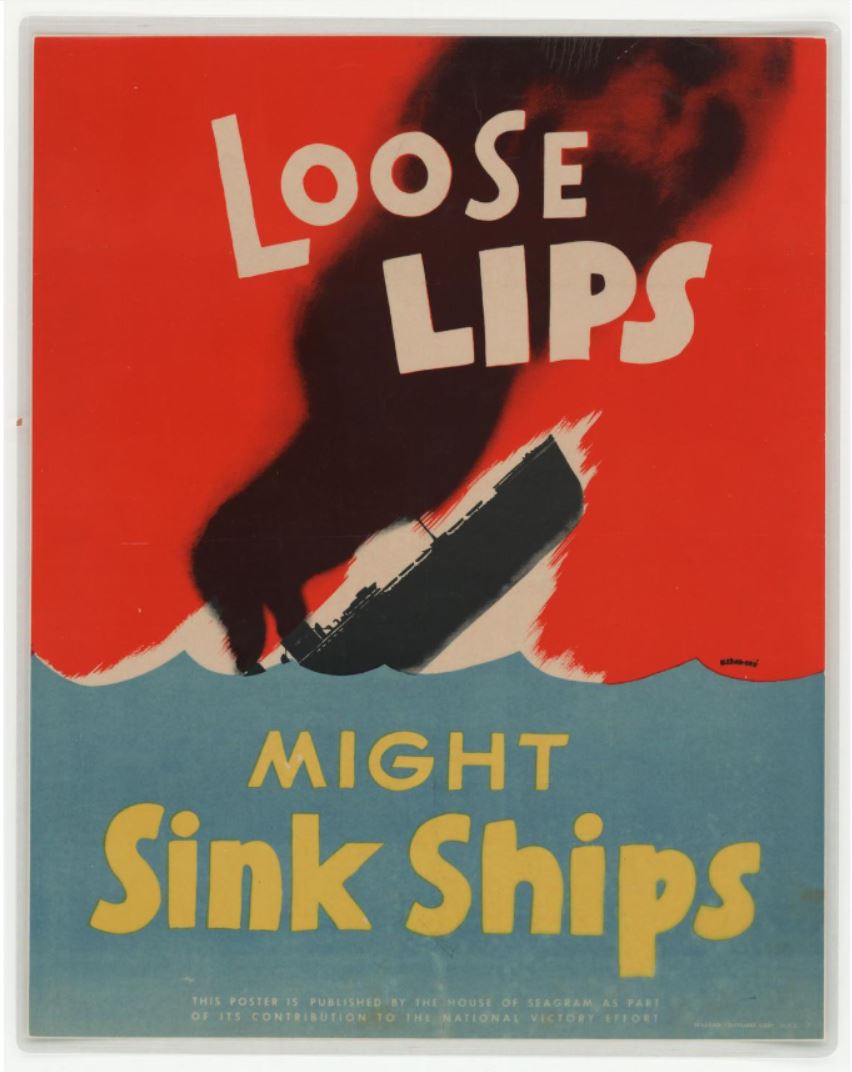
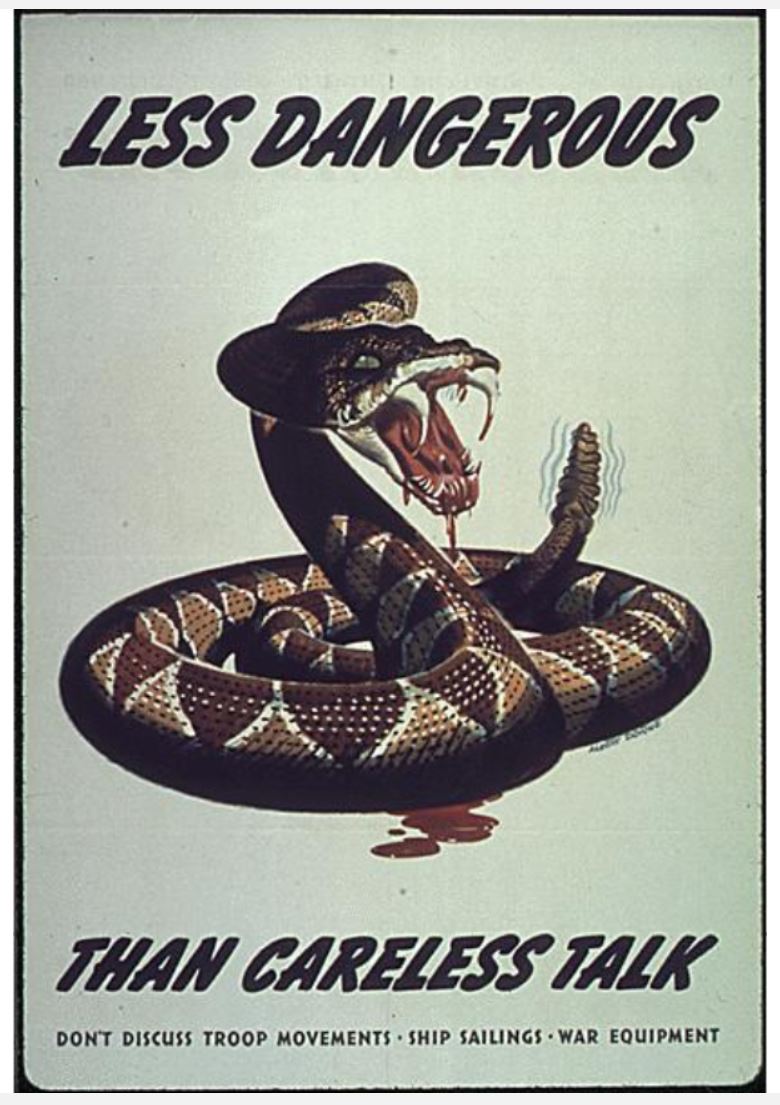
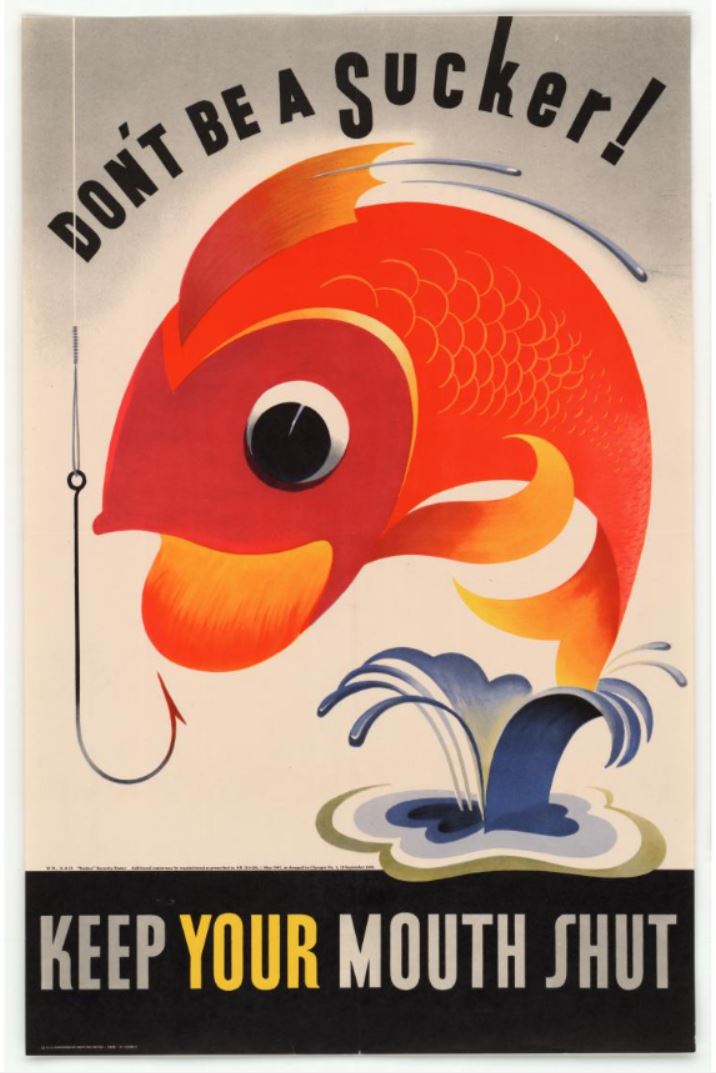
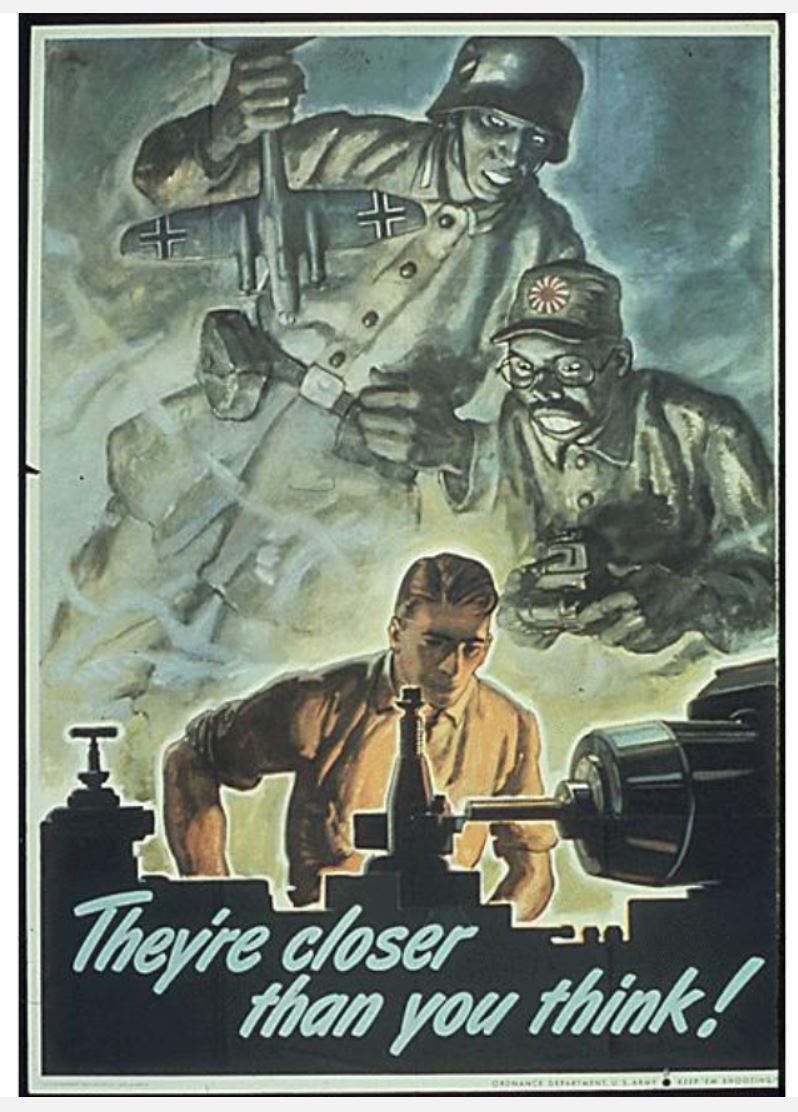
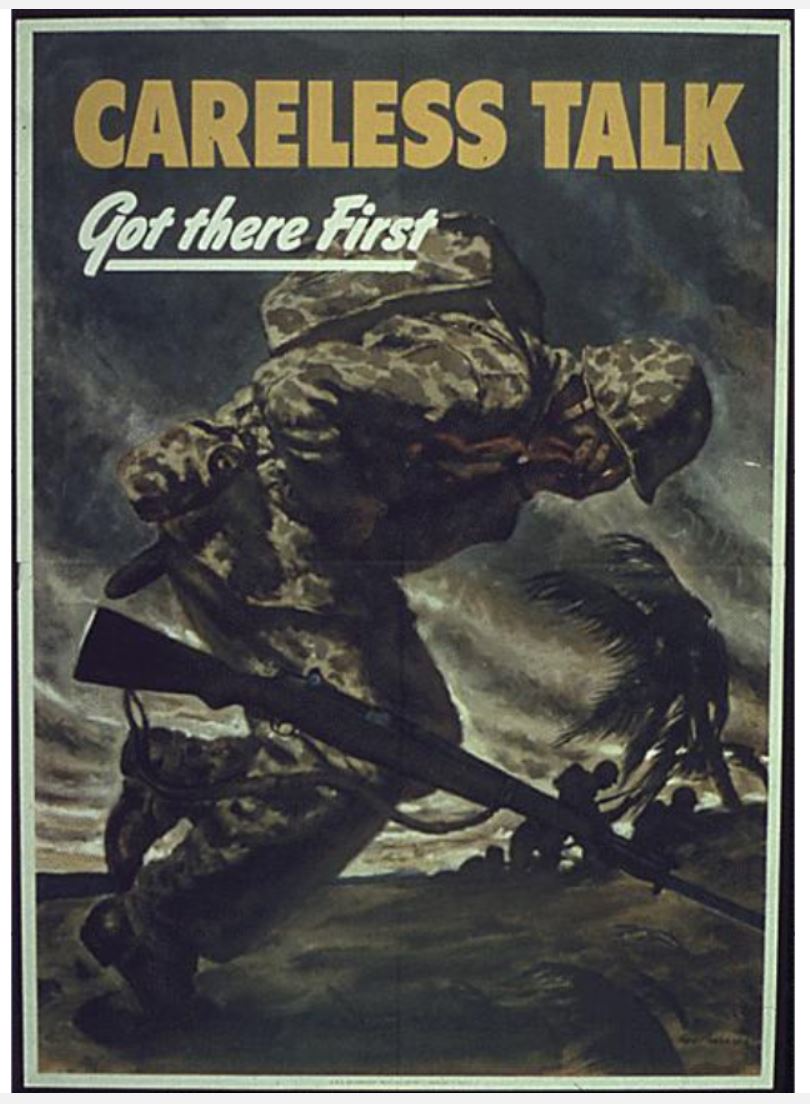
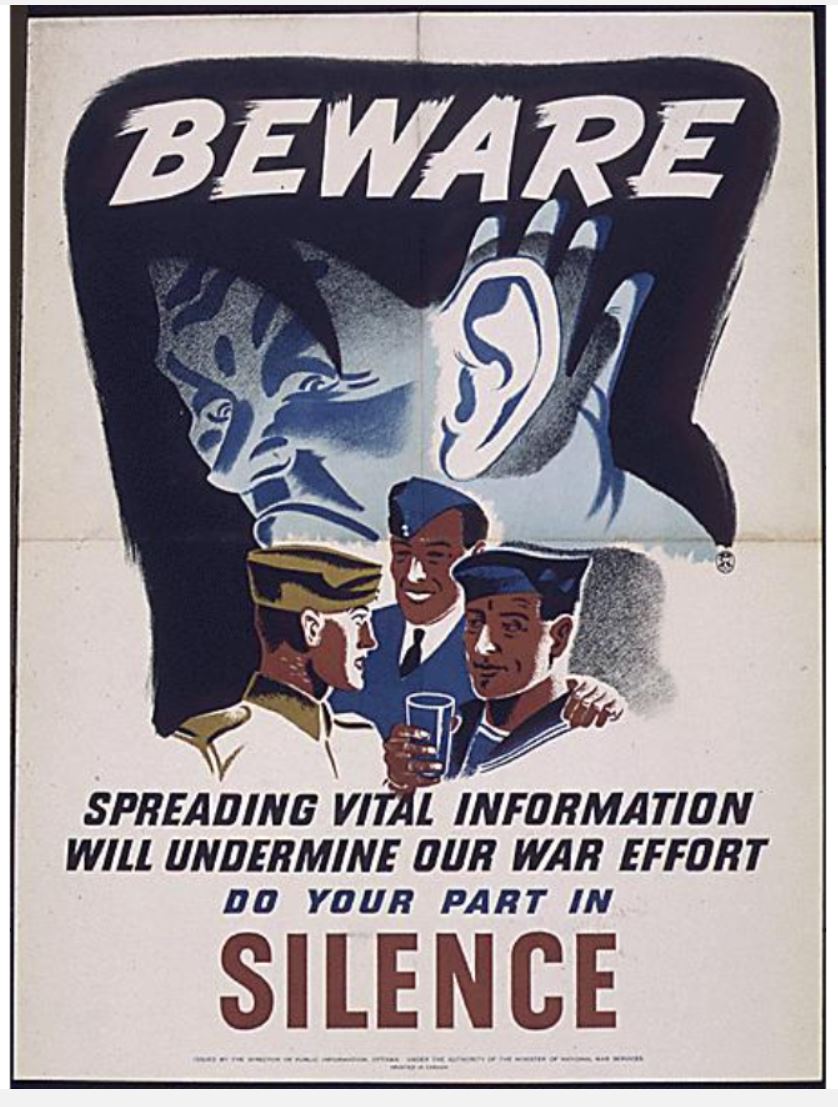
Those are just a few but you get the idea. Realizing now that the threat once existed at the end of my block makes me much more appreciative of how massive the problem must have been.
The war had just begun. The many atrocities of the Third Reich were not yet known. Undoubtedly there were many German immigrants in the United States with sentiments favoring their homeland. So far I have found no information on what happened to the folks involved in this incident in Maplewood. Why did they have a powerful shortwave radio receiver? This was a time of war. Surely that was a very serious infraction.
I just can’t tell you how exciting it was to me to find those articles. That was another sort of Holy Grail of Maplewood History. Newspapers.com is amazing.
Doug Houser August 14, 2020

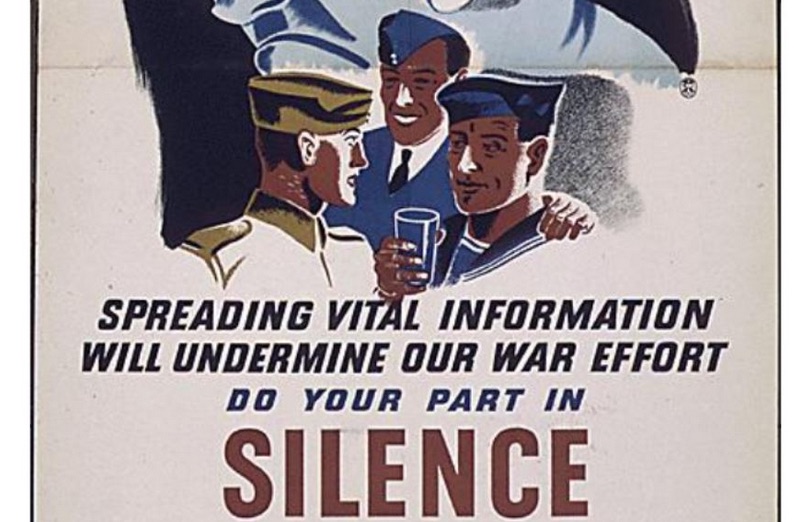
Hindsight is 20/20 but try to imagine the times. The most Germans to immigrate to the US did so in the 1800’s for the same reasons as other nationalities, to escape persecution and poverty. After the WW1 Treaty of Versailles intentionally bankrupt Germany there was another (less large) influx for similar reason. During and after both world wars many Americanized their last names (Schmidt to Smith, Müller to Miller) to avoid the obvious suspicion associated with German (or Asian) immigrants. They were unfamiliar with Hitler and only knew what they were told by the American press and their contacts from home. On one hand (American press) Hitler, and all Germans were nothing more than SS and Gestapo. To this day most of us associate WW2 Germany only as Nazi Germany (At it’s peak less than 10% of the population in 1945 were members of the Nazi party). On the other hand (friends and family) news from their homeland was of great feats, autobahns, buildings, unlimited employment opportunities and the like. Who to believe? American media and politicians pointing out (they) all Germans were bad or their family and friends telling them of all the improvements in their homeland? These were Americans in every sense that today Africans, Hispanics and Asians are Americans but without literally experiencing life there, all they got was good news from their family and friends, they couldn’t see the oppression. Must have been a tough choice, my new home or my ancestry. I would have wanted to get all the info I could. Imagine being a Germany immigrant with family and friends still there, imagine being a Jewish German immigrant! Without phones, short wave would have been the only real time method.
There was a large group of German POW’s kept near Hannibal, Mo. Most of them worked at Stark Brother orchard. They were allowed to go to town to see a movie on Saturday night and to go to church on Sunday. Many of them stayed here after the war. Another group of Italian POWs were held near St. Genevive. Others were sent throughout the US. Many were sent to work in the cotton fields in the South
After the war, a German synthetic oil plant was moved to the Hannibal area to make oil out of coal. It worked, but they could never make it cost-effective.
There was a huge German Club by Lafayette Park. It was sold to a church (Gateway Temple) in the 1970’s. There is still one up on Broadway, they teach culture and language classes or did as far as I know a few years ago.
not directly related to this story but I seem to remember reading about a German Prisioner of War camp in Missouri. What I recall is that we brought German soldiers here and had a camp to imprision them but cannot remember who might have told me that or where that comes from. Seems kind of unlikely that we would ship soldiers here from Germany.
There werePOW’s held in Missouri during WW2
“As author David Fiedler explains in his book “The Enemy Among Us: POWs in Missouri During World War II,” the state was once home to more than 15,000 German and Italian prisoners of war.
“Established at Weingarten, a sleepy little town on State Highway 32 between Ste. Genevieve and Farmington, Missouri, (Camp Weingarten) had no pre-war existence,” Fiedler wrote. The author further explained, “(T)he camp was enlarged to the point that some 5,800 POWs could be held there, and approximately 380 buildings of all types would be constructed on an expanded 950-acre site.””
Hey Tom, that camp name must have made the Germans feel at home. I had no idea anything like that existed here in Missouri and so close. Much thanks for that information.
my Grandparents came off the boat in 1891 before WWI, my grandmother never spoke fluent English and thought Hitler was a great guy until we went to war against him. My father worked at Monsanto during WWII, it was turned to munitions after the start of the war. Before the war my whole family spoke only German with each other, after the war started, it was never spoken in public again, I know they kept their opinions closely guarded, they knew as Germans they were being watched, and many of the German clubs and schools were closed. My father had a shortwave radio, I know he would not have used it during the war, but as soon as the war was over we talked all the time with Alaska and many countries, it was a much bigger hobby years ago, but if you were German you know you would be in a lot of trouble if caught. I can’t imagine them using that, at that time with innocent intentions.
I have a few friends who even today watch television with the Spanish or French language being spoken. One lady is close to 80 but has lived here for 50 years. She says that she dose it so when she calls overseas to her family she can talk to them with ease. She says most of her French family does not speak good English and it is her way to be able to communicate with them. I think the idea that you might have a short wave radio to keep in touch with family makes sense to me.
I think most of us know that there were a several German published newspapers here in St Louis and the surrounding area. When they went out of business I have no idea.
I do wonder if the Maplewood connection was innocent or not. I wonder if there is any way to find out since it was a FBI case.
Mark, German language newspapers ceased to be published prior to WWI. Classes teaching the German language were also discontinued then. The Maplewood bunch may have been innocent of any wrongdoing. I imagine the FBI has a file on this case. If only we knew an FBI agent. Hmmm.
These comments of yours are very interesting, Mary. Thanks for posting them.
And then, the short -wave might have been to tune in to news closer to Germany. It makes sense that immigrants would be worried about relatives “back home” and want as much news as possible.
You make a good point, Patty. The article does say it was a receiver and not a transmitter. I think that during WWII if persons in this country had close family connections or close connections of any kind with people in either Germany or Japan, they had best suspend them until after the war. They may have been legitimate and perfectly acceptable prior to the war. Once war was declared everything changed.
FDR issued a Presidential Proclamation on December 7, 1941 that placed certain restrictions on “Enemy Aliens” of Japanese ancestry. The next day these restrictions were extended to persons of German and Italian ancestry. These included not being allowed to be in possession of a camera or a shortwave receiver. If the radio was capable of having the shortwave reception disabled so that it would only receive the standard AM broadcast band this was allowed.
Amateur radio had been suspended on December 8, 1941 for the duration of the war. Communication with international amateur radio stations was prohibited starting in June, 1940. The FCC also created the Radio Intelligence Division in 1940 to track down any unauthorized transmissions that may be for nefarious purposes.
All I can say is “WOW”. Thanks Doug
Crazy, ain’t it, Nancy? I wonder what, if anything, they were up to? Could there have been a legitimate use for the powerful shortwave radio receiver? Did anyone ever get charged with anything? Hopefully we’ll learn more in the future.